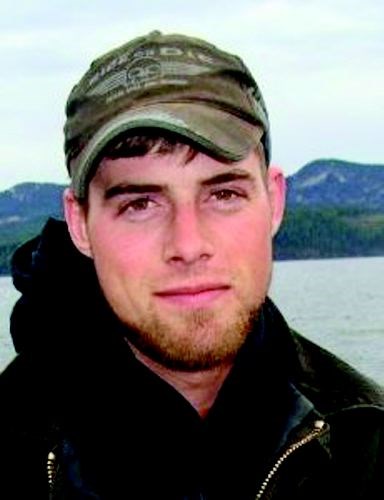A jury was asked Friday to consider the possibility the victim was already dead by the time the accused handed the alleged murder weapon to a colleague.
Defence lawyer Danny Markovitz made the suggestion as he delivered a closing statement on behalf of his client, James David Junior Charlie, accused of first-degree murder in the January 2012 death of Fribjon Bjornson.
In doing so, Markovitz emphasized the testimony of a pathologist who told the court he was unable to determine the cause of Bjornson's death. With barely more than Bjornson's head to work with - recovered from a nearby home nearly three weeks after the killing - the pathologist testified he was unable to find hemorrhaging in the eyes, considered a telltale mark of strangulation.
The court has heard Bjornson went to a home on the Nakazdli reserve near Fort St. James to buy drugs only to be dragged into the basement by four men and beaten unconscious.
Under questioning by police shortly after his arrest, Charlie said it was suggested it was time to "finish off" Bjornson and in turn, he cut a piece of telephone cord from the rafters and handed it to one of the others, Wesley Duncan, to tighten around the the victim's neck.
By that time, Bjornson was making a "snoring sound," Charlie also noted. Markovitz suggested it was the sound of air escaping from a dead body and noted the pathologist has heard sounds coming from a bodies just as he was about to start an autopsy.
He said the Crown must prove its case beyond reasonable doubt for jury members to find Charlie guilty and in doing so, they must be certain Bjornson was still alive by the time Duncan took to strangling the victim.
"You can't murder someone who is already dead," Markovitz told the jury.
In his respective closing statement, given Thursday, Crown prosecutor Richard Fernyhough noted the pathologist had also testified that death by strangulation does not always lead to hemorrhaging in the eyes.
Markovitz also argued the acts were carried out in an atmosphere of "gross impairment" by drugs and alcohol, and said moves like turning against a regular source of income make no sense.
If jury members agree, he said they can conclude Charlie did not have the required intent to commit murder.
Fernyhough submitted Charlie left the home in Bjornson's truck in order to deprive him of a way of escape and to get rid of a piece of evidence. But Markovitz urged the jury to draw no conclusions from that act.
"Sometime things happen for no reason and that's what makes the abuse of drugs and alcohol so scary," he said. "Because it leads to situations that would otherwise never occur."
Charlie has pleaded guilty to indignity to a dead body.
In June, Duncan was sentenced to life in prison without eligibility for parole for 15 years, for second degree murder in Bjornson's death.
B.C. Supreme Court Justice Ron Tindale will give his charge to the jury on Tuesday. They will be sequestered for deliberations once that's completed.



